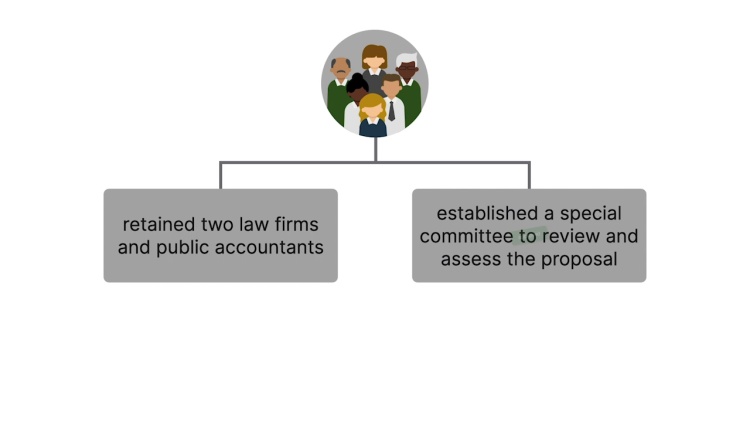Kahn v. Sullivan
Delaware Supreme Court
594 A.2d 48 (1991)
- Written by Katherine Li, JD
Facts
The board of Occidental Petroleum Corporation (Occidental) was presented with a proposal to make a charitable donation to build and fund an art museum named after Armand Hammer, Occidental's chief executive officer and chairman of the board. The board retained two well-known law firms and Occidental's public accountants to evaluate the proposal. After hearing the law firms' and the accountants' analyses, the board established a special committee that was comprised of its eight independent and disinterested outside directors to review the proposal. The special committee discussed the proposal with the law firms and the public accountants. Finally, the special committee concluded that the construction of the museum would be beneficial to Occidental and unanimously approved the proposal. Occidental subsequently submitted the approval of the proposal to its shareholders in the proxy statement for its annual meeting. Two shareholder actions were filed, challenging the validity of the gift. Before trial, the plaintiffs in the Kahn action (plaintiffs) moved for a preliminary injunction to enjoin a proposed settlement in the Sullivan action. The Delaware Court of Chancery denied the motion. The parties to the Sullivan action (defendants) submitted the settlement agreement to the court of chancery for its approval. Despite the objections from some shareholders, the court of chancery found the settlement to be "reasonable under all of the circumstances" and approved it. The Kahn plaintiffs appealed.
Rule of Law
Issue
Holding and Reasoning (Holland, J.)
What to do next…
Here's why 907,000 law students have relied on our case briefs:
- Written by law professors and practitioners, not other law students. 47,100 briefs, keyed to 996 casebooks. Top-notch customer support.
- The right amount of information, includes the facts, issues, rule of law, holding and reasoning, and any concurrences and dissents.
- Access in your classes, works on your mobile and tablet. Massive library of related video lessons and high quality multiple-choice questions.
- Easy to use, uniform format for every case brief. Written in plain English, not in legalese. Our briefs summarize and simplify; they don’t just repeat the court’s language.





